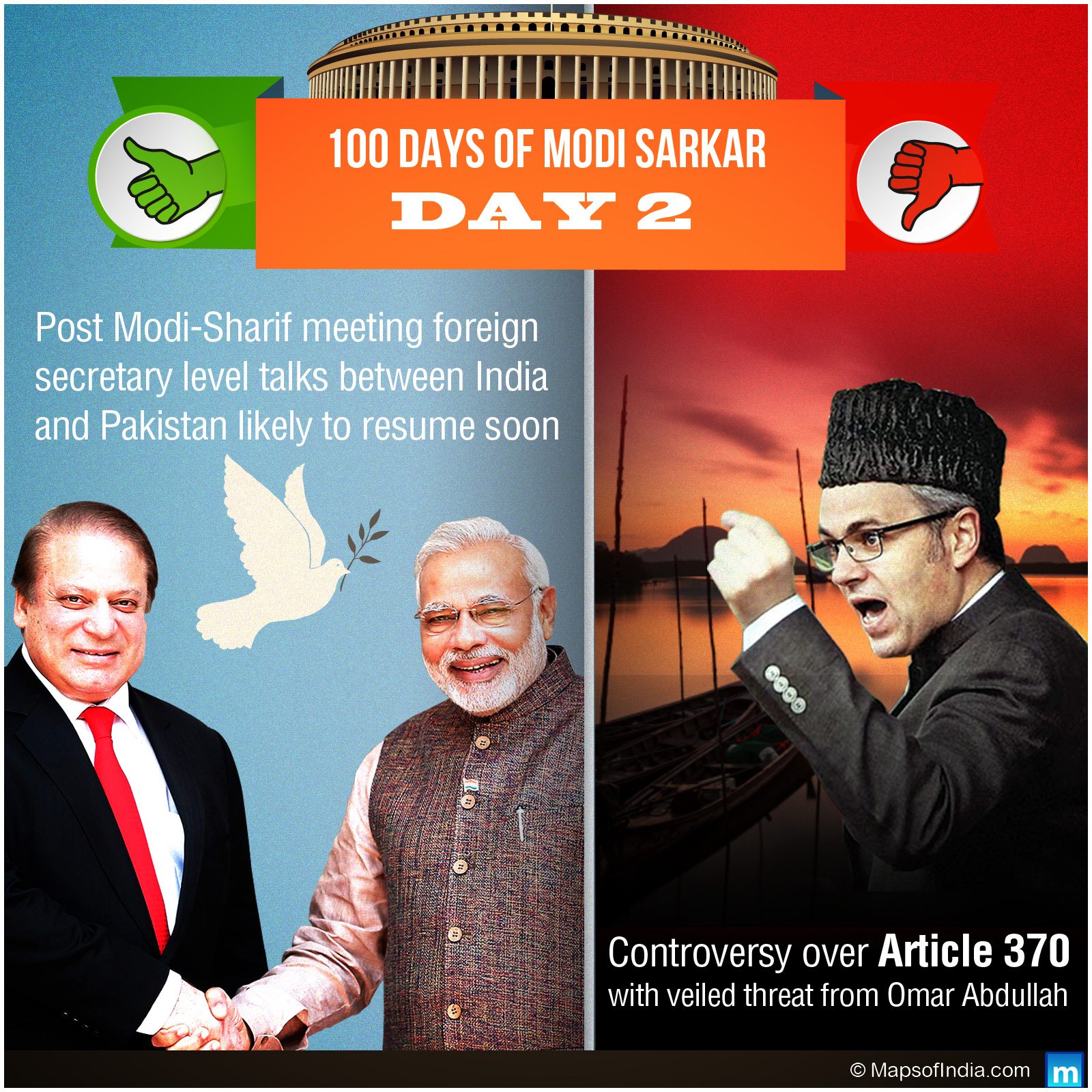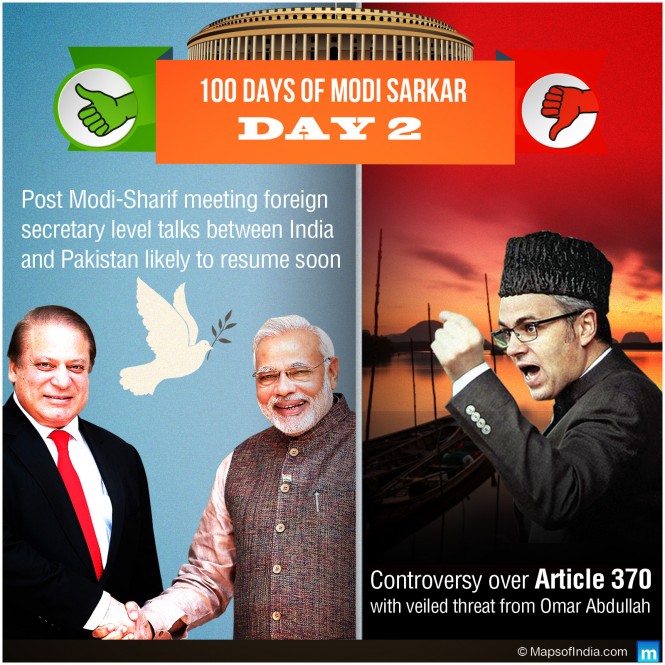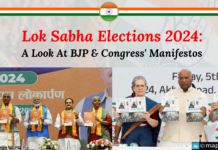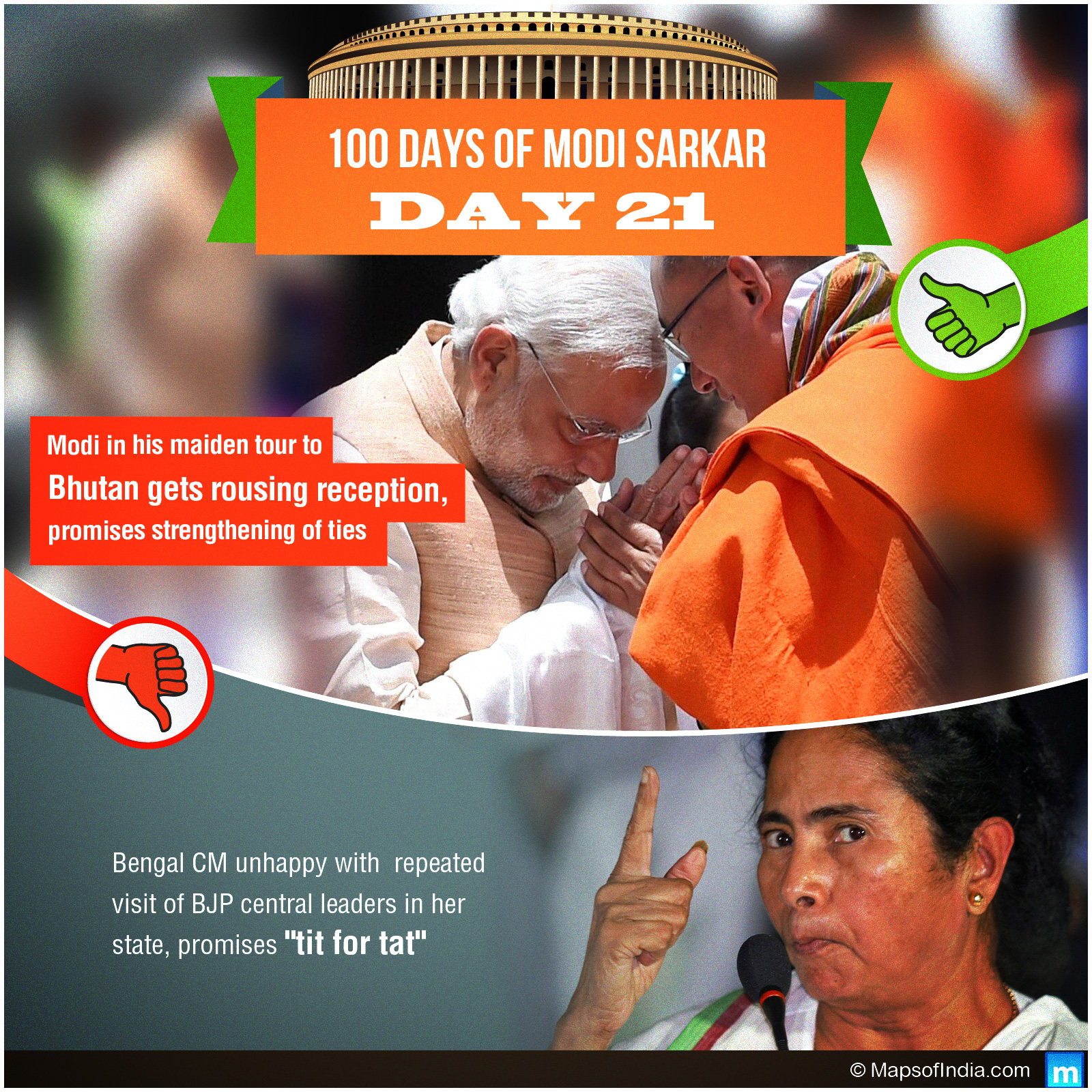If anybody thought political controversies will take a backseat at least in the initial days of Modi sarkar, they are in for a surprise. Barely two days into operation, the newly sworn-in government has wrapped itself in a torrent of controversies, with possibly far-reaching ramifications. From Article 370 to educational qualification of Ministers, a host of issues cropped up, which even somewhat shifted the limelight from the historic Modi-Sharif talks.
In the morning Modi went to his office for the first time to formally take charge. He soon had to hit the ground running, meeting the top leadership from the SAARC countries. The longest meeting, perhaps expectedly, happened with Nawaz Sharif. In the nearly hour-long conversation, virtually every contentious issue was raised by India. From the trials of the 26/11 case to the recent attacks on the Indian consulate at Herat in Afghanistan, all the topics were discussed in a meeting widely seen as an “icebreaker” between the two top leaders. The major takeaway from the meeting seems to be that talks at the foreign secretary level will resume soon, which have been held up since January 2013.
The BJP in general and Narendra Modi in particular have maintained a hawkish stance on Pakistan, claiming that terror and talks can’t go on simultaneously. The press statement of the foreign secretary also echoed that sentiment. Sharif, on his part, completely skirted the issue of terror, saying that both nations have to seek to convert confrontation into opportunity. He said that they should get out of the circle of accusations and counter-accusations to handle all the issues. It is to be seen how far this spirit of bhaichara (brotherhood) remains between the two countries, especially with often recorded incidences of Pak-sponsored provocation on the border. But the cautious yet positive start certainly raises hope for future.
Although most of the ministers knew their portfolio, it was officially communicated by the PMO in the morning. Soon Ministers started to formally take charge. Arun Jaitley, who has been entrusted with the dual responsibility of Finance and Defence, said that his primary goal is to control inflation and reduce deficits on the economic front. He acknowledged the enormity of challenge in front of him. Arun Jaitley’s first priority will be to prepare a balanced budget, not wavering too much from the populist goal of Modi government, yet looking ways for rejuvenation of the economy. Jaitley also clarified that his defence portfolio is an interim one and India will have a permanent Defence Minister within two weeks.
One of the first people who met Arun Jaitley was RBI governor Raghuram Rajan. The RBI decides the monetary policy of the nation and it needs to be in sync with the fiscal policies of the government for best results. Rajan reaffirmed that they will continue to do the fine balancing act of encouraging growth while trying to tame the demons of inflation. He hailed the fact that Current Account Deficit has significantly decreased, primarily due to fall in gold imports.
The markets today, though, showed a negative trend, with the Sensex falling 167 points after a continuous surge for 3 days. The Rupee was also down 28 paisa. Many believe that with the government slowly settling in, a period of “correction” will likely occur in the markets after the manic surge of the last few weeks. Commerce Minister Nirmala Sitharaman today clarified that they are not thinking of reconsidering their FDI policy on multi-brand retail.
Often the chief apprehension of liberals with the Modi Sarkar has been that a brute majority will force it to bring all the controversial issues back to the table, which Vajpayee couldn’t do owing to pressure from allies. One such issue is definitely the abolition of Article 370, which grants special status to Kashmir. The newly sworn in Minister of State in the Prime Minister’s Office, Jitendra Singh stoked the first major controversy of the day, saying that the discussion to revoke Article 370 has started. This was met by hostile reaction from the mainstream political parties of Kashmir. Jammu Kashmir Chief Minister Omar Abdullah lashed out at the NDA government and in a way gave a veiled threat. He said on Twitter, “Mark my words & save this tweet – long after Modi Govt is a distant memory either J&K won’t be part of India or Art 370 will still exist”.
Facing flak, Jitendra Singh backtracked on his comment, saying that he has been misquoted and the controversy is baseless. “Voice of the youth” Chetan Bhagat soon stepped in to give his two cents on the issue, saying that Article 370 has to go. For long, issues like Article 370, Ram Mandir, and the Uniform Civil Code have been “pet projects” of BJP and the Sangh Parivaar. It remains to be seen if and how they follow up on these issues, which have considerable traction among the core voter base.
Another unsavoury controversy broke out first on social media and later in the political arena regarding educational qualification of India’s new HRD Minister Smriti Irani. Ajay Maken, head of Congress’s Media cell, questioned her credentials, asking how a person who is not even a graduate gets charge of the education ministry. Even the Modi sympathisers on social media seemed to be split on this topic. Madhu Kishwar, editor of Manushi and known as an ardent Modi fan, questioned the rationale of entrusting a class 12 pass with such a crucial ministry. Lot of people, though, supported Irani, with right-wing thinker Swapan Dasgupta even saying that Rabindranath Tagore too didn’t have college education. A lofty comparison indeed!
A mini-controversy broke out with the NDA ally Shiv Sena expressing displeasure over allocation of ministry. The Shiv Sena, having 18 MPs, sought 5 berths, including two cabinet posts, but it merely got a single cabinet portfolio. Party leader Anant Geete, who has been entrusted with the Heavy Industry ministry, didn’t take charge today owing to displeasure with his portfolio.
He, however, attended the first cabinet meeting of the Modi Sarkar. In this meeting it was decided that an SIT will be formed as per order of the apex court to probe the issue of black money stashed abroad and to ensure a mechanism to bring it back. The SIT will be headed by former retired SC Judge MB Shah and will have representatives from the RBI, the CBI and the IB, among others. Modi had made bringing black money back as one of his prime agenda in the elections and the first cabinet decision is certainly a step in that direction.
These were all the top news from the controversy-filled day 2 of the Modi government. As ministers get settled in, we will soon know more about their blueprint to pursue developmental agenda. Keep watching this space for more updates.
Today’s key economic parameters
| Indicators | Value | Rise/Fall |
| Sensex | 24549.51 | -167.37 |
| Nifty | 7318.00 | -41.05 |
| Rupee/ Dollar | 59.04 | -0.33 |
| Gold | 26,950 | -533.00 |
| Silver | 40,352 | -791.00 |
| Brent Crude | $110.44 | + 0.08 |
| WPI (April) | 5.2% | -0.5% |
| CPI (April) | 8.59% | +0.28% |
Read More:
Two Years of Modi Government
One Year of Modi Sarkar
Top Programmes Launched by Modi
Pradhan Mantri Yojana
Narendra Modi






